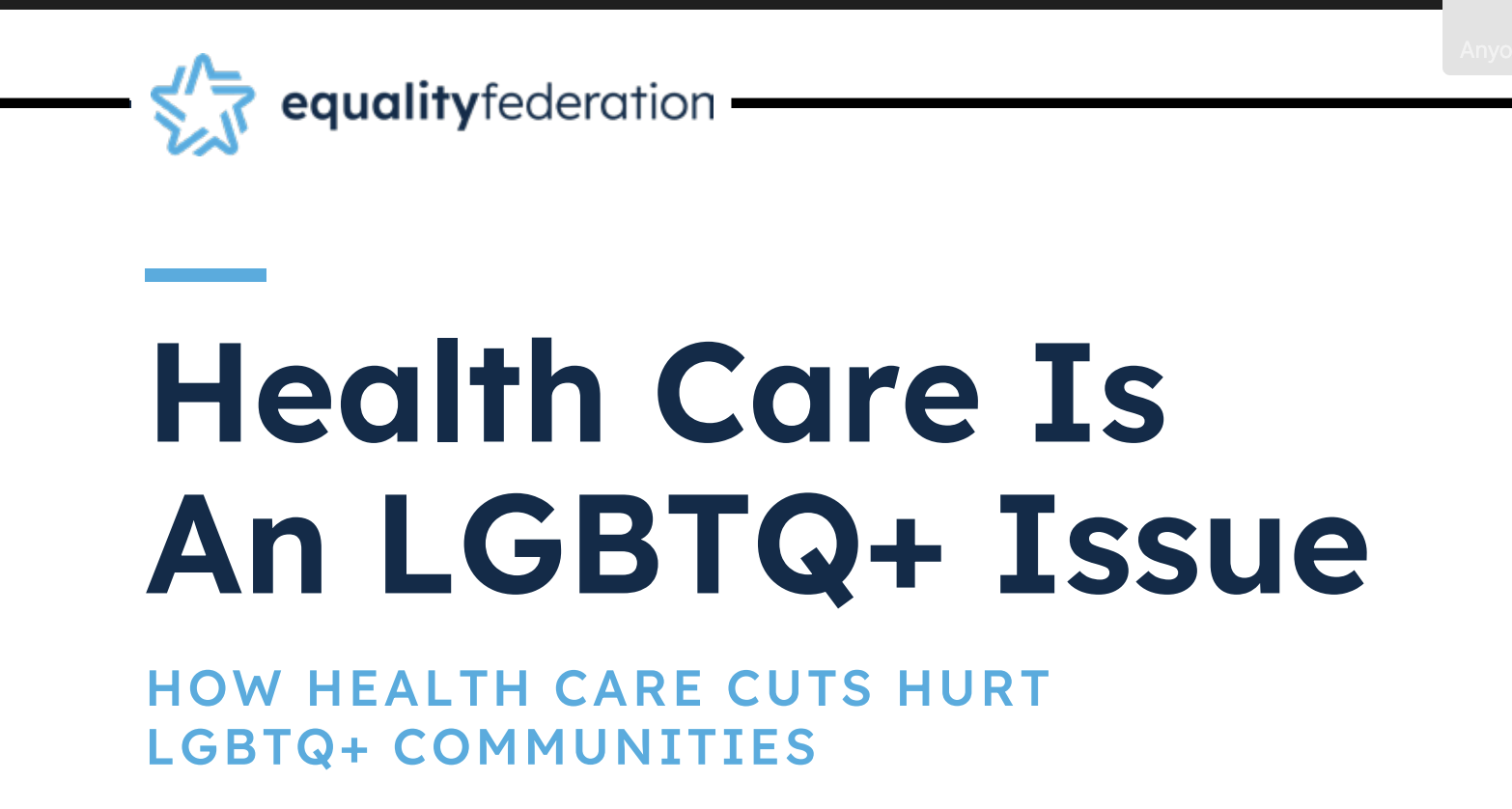Equality Federation won’t stop until all LGBTQ+ people are fully empowered and represented in their communities, experiencing full equality in their lives.

FACT: Cuts to health care disproportionately hurt LGBTQ+ communities. Click to view our health care factsheet!
.png)
We are thrilled to share that three of our incredible team members have been selected for the National Black Justice Collective’s (NBJC’s) 2025 Cohort of 100 Black LGBTQ+/SGL Emerging Leaders to Watch!
“Beyond Pink Ribbons” is more than a slogan. It’s a reminder that breast cancer advocacy must evolve if it’s going to serve everyone it claims to represent. It’s time to create space for everyone who lives with, or is at risk for, this disease.
Equality Federation acknowledges and deeply apologizes for perpetuating the systemic harm and exclusion of disabled people at our 2025 Leadership Conference.

We are pleased to announce the addition of two effective and experienced leaders to our senior leadership team!
.png)
In response to the Supreme Court decision on the Braidwood case today, June 27, a national coalition released the following statement from the Executive Directors of Lambda Legal, PrEP4All, the Center for Health Law and Policy Innovation, the Center for HIV Law and Policy, and Equality Federation.
.png)
In response to the Supreme Court decision on the Braidwood case today, June 27, a national coalition released the following statement from the Executive Directors of Lambda Legal, PrEP4All, the Center for Health Law and Policy Innovation, the Center for HIV Law and Policy, and Equality Federation.

Today, the U.S. Supreme Court issued a 6-3 ruling in U.S. v. Skrmetti, upholding Tennessee’s ban on affirming healthcare for transgender youth.
.png)
Maryland Governor Wes Moore today signed into law comprehensive legislation to modernize the state's approach to HIV and end the criminalization of people living with HIV. The reform, HB 39/SB 356, will align state policy with modern medical science and remove barriers to life-saving care.

We’re so excited to introduce you to the newest members of our state partner network: IYG and Fairness Pennsylvania!

We joined The Center for HIV Law and Policy (CHLP), PrEP in Black America (PIBA), Afiya Center (Dallas), Women with a Vision (New Orleans), SisterLove (Atlanta), and BlaqOut (Kansas City, Missouri) in filing an amicus, or “friend of the court,” brief in the Braidwood v Kennedy case on appeal in the Supreme Court in order to take a stand defending access to preventative health care nationally and to protect the Black and brown lives that will be lost should this access be overturned.
.png)
Last month, we hosted our New Executive Director Intensive, one of our longest-running leadership programs. For over a decade, this program has brought together Executive Directors who are new in their role to foster healthy, sustainable organizations and leadership practices. Here are inspiring takeaways we got out of this year’s intensive!

.jpg)
.jpg)
.jpg)
.jpg)
.jpg)
With your support, we'll be able to continue our work to build the leaders of today and tomorrow, strengthen state-based LGBTQ+ organizations, and make critical progress on the issues that matter most—like protecting transgender people, ending HIV criminalization and ensuring access to care, and banning conversion therapy across the country.